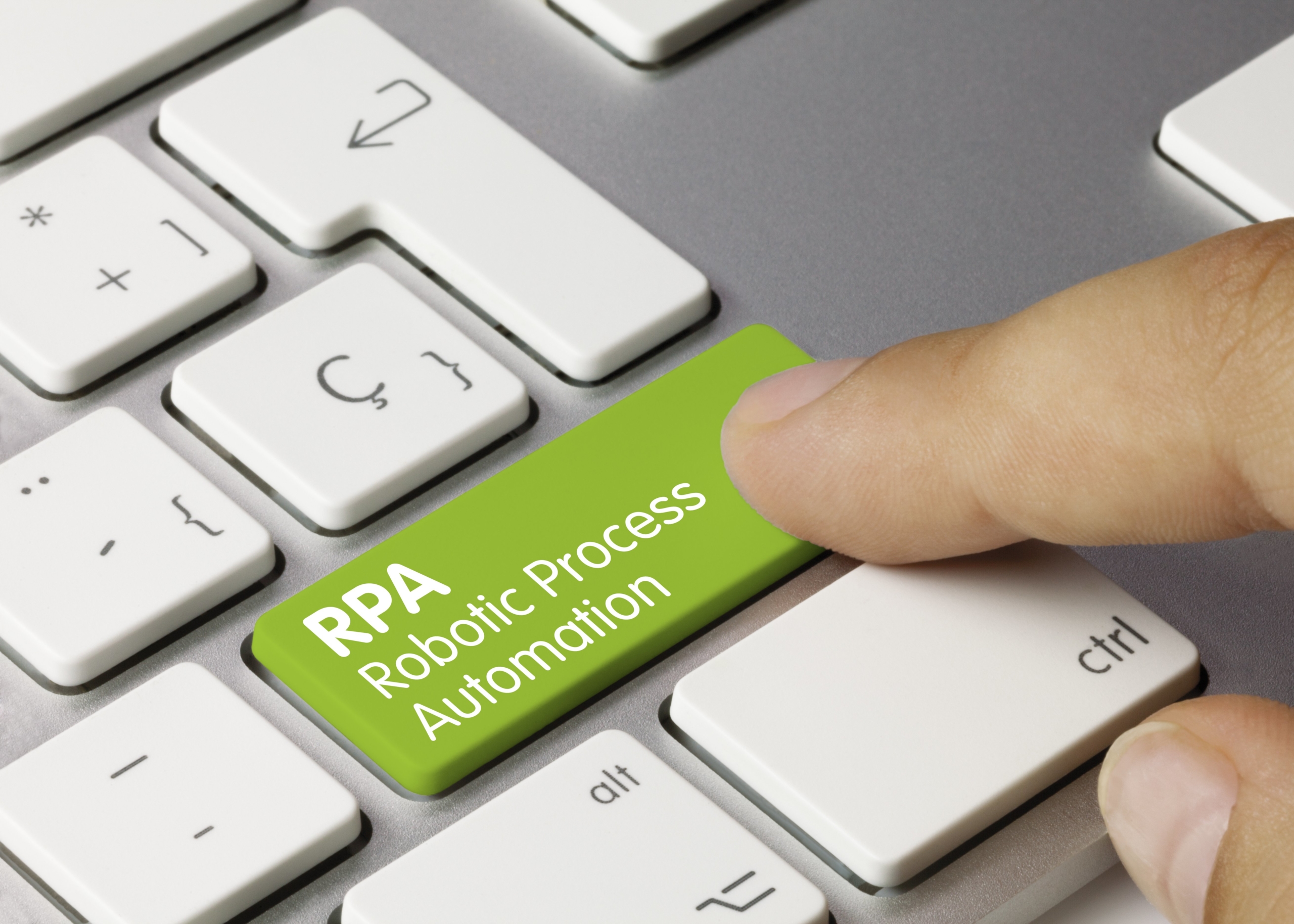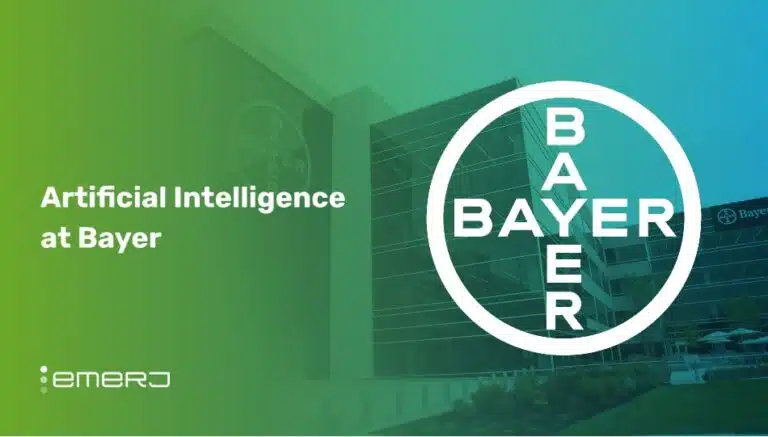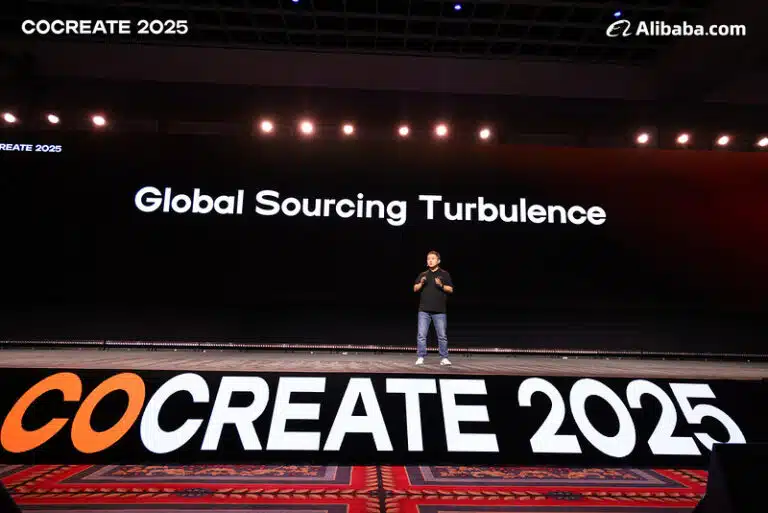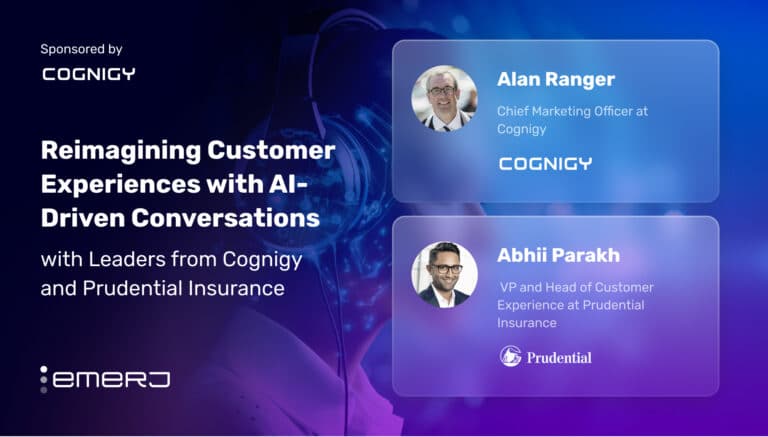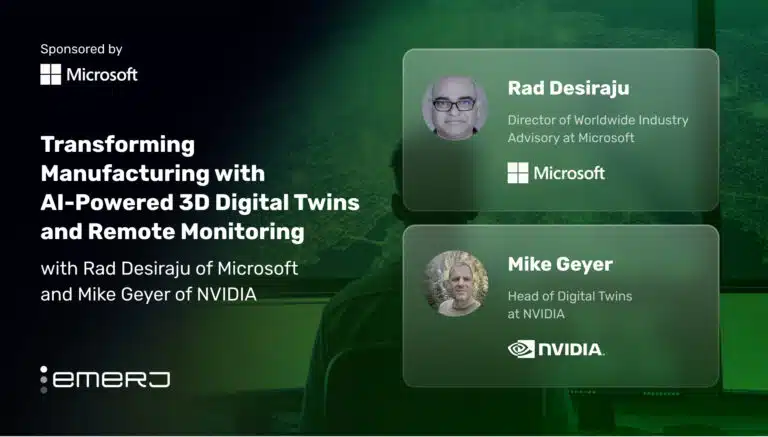The following brand partnership article was written by BIS Research analyst Rahul Papney, and edited by Raghav Bharadwaj of Emerj. For information about our advertising and publishing arrangements with brands, please visit our partnerships page.
With the advent of automation, there’s been a boom of new jobs across various industries creating a paradigm shift in the standard of living of inhabitants and the society, in general. Today, the modern product design and manufacturing processes increasingly depend on robots in the workforce. Industries all over the world are transforming their business models by automating repetitive operational processes which can help the firms to optimize routine operations by increasing efficiency and reducing costs.
For white-collar workforces, the implications of this change may be as deep as those brought to the manufacturing sector by that industrial automation (in terms of productivity and cost savings for organizations). At present, Robotic Process Automation (RPA, sometimes referred to as “white collar automation“) finds limited use in most organizations at a global scale. But, it is rapidly establishing itself as a prospective technology that several progressive service delivery leaders are betting on.
The integration of cognitive capabilities into robotic process automation platforms has led to the development of Cognitive Robotic Process Automation (CRPA) software bots. CRPA platforms can automate perceptual and judgment-based tasks through the integration of multiple cognitive capabilities including, natural language processing, machine learning, and speech recognition. Some of the key companies offering solutions for the RPA/CRPA market are Automation Anywhere, Blue Prism, Nice Systems, Work Fusion, UiPath, Kryon Systems, Softomotive, and Ipsoft, among others.
A 2017 BIS Research report on the Cognitive Robotic Process Automation (CRPA) market estimates the total CRPA platform and services market to be around $50 million in 2017, growing at a CAGR of 60.9% from 2017 to 2026. Although we must add here that Emerj was not privy to the full research report and cannot effectively comment on it.
Current Applications of RPA/CRPA
Finance and Banking
The customers of financial services companies are looking for convenient ways of transferring money and making investments. This has resulted in an increase in the amount of data that needs to be handled, as well as the speed of information transmission. To keep up with the increasing demand for process automation, some financial and banking institutions have started adopting artificial intelligence (AI) based platforms to automate their regular operations.
According to BIS Research, Finance & Banking sector is expected to become the biggest revenue generator in the global Cognitive Robotic Process Automation (CRPA) industry. Geographically, North America was estimated to report the highest revenue of $6.4 million in 2017, followed by Europe, Asia-Pacific and Rest of the world.
For instance, in October 2016, a Swedish bank, Skandinaviska Enskilda Banken (SEB), purchased cognitive robotic process automation software from one of the leaders in the industry, IPsoft, for improving its customer service.
The cognitive robotic process automation software is in the form of a software robot called Amelia, that can speak 20 languages, including Swedish, and English. Amelia was launched in 2014, which understands the semantics of language. If Amelia is not able to solve the problem, it passes the query to the human operator, and observes the interaction to improve its knowledge for handling further such cases on its own.
The banking and financial services organizations have been the early adopters of RPA based software for various applications. To tap this growing market, the service providers are keen to invest in this technology and hence, are collaborating with technology vendors dealing with RPA/CRPA based platforms.
Automation Anywhere a cognitive robotic process automation vendor that offers built-in cognitive solutions and analytics. In March 2017, KPMG (U.K.) entered into a go-to-market teaming agreement with Automation Anywhere that secures KPMG’s investment in RPA digital transformation expertise for creating digital workforce for their clients. Other service providers like Deloitte, Cognizant, and Capgemini are also helping clients across various industries for solving multiple applications including claims processing, online transactions, and human resource management.
Robotic Process Automation in Insurance
Processes like data gathering and validation and updating systems can consume a substantial amount of time for insurance firms. Manual claims processing is associated with multiple tasks (manual inputs, legacy applications, data retrieval etc.) and are responsible for creating various challenges for the insurance industry.
The insurance industry has already initiated the adoption of automation for enhancing its customer service capabilities, as well as employee engagement activities. Through robotic process automation, the insurance companies can automate their task of fraud checking and policy renewal, along with calculating premiums and gathering data. Software robots can work consistently for long durations, and hence, help in increasing the productivity, and efficiency of the business. This allows insurance agents to focus on those customer service tasks which cannot be automated.
The insurance industry across the major developed economies like the U.S.and the countries across Europe, and Asia-Pacific regions is strong and is observing a relatively widespread implementation of RPA/CRPA software bots. France, reported to be the fifth largest country with the highest life and non-life insurance premiums worth $237,644 million in the year 2016, witnessed the AXA Group, one of the leading French insurance companies, deploying intelligent automation for improving its underwriting.
Another example is the leading Australian IT service provider, DXC Technology, which plans to expand its global partnership with “Blue Prism”, one of the key companies offering RPA based platforms. The company is providing its RPA capabilities to global insurance clients, like the Australia and New Zealand Banking Group (ANZ). Moreover, in May 2017, DXC Technology also announced the introduction of 60 new robotic process automation experts in Australia, along with New Zealand.
Fukoku Mutual Life Insurance, one of the leading insurance firms in Japan, claims to have replaced more than 30 human workers with the latest IBM’s Watson Explorer AI technology. The insurance firm has initiated this action to eliminate the repetitive processes for calculating payouts for policyholders. The company claims an increase in their productivity by ~30%, and savings up to $1.3 million per year, since the deployment of the software.
(Readers with an interest in the insurance industry may enjoy the full Emerj industry article titled: “How America’s Top 4 Insurance Companies are Using Machine Learning“.)
Telecom and IT Services
Information service providers have now started using RPA software platforms to reduce their manual work in information technology and business processes. The emergence of cognitive technology, including artificial intelligence, machine learning, and big data analytics, is creating various opportunities for telecom and IT service providers to streamline day-to-day work environment.
Some of the outsourcing companies have already implemented the RPA software to automate their business operations. The increasing cost and declining margin in the business process outsourcing services is expected to remain critical factors which will drive services providers to invest in RPA/CRPA software bots.
In August 2016, one of the leading global IT and business process services company, Hexaware Technologies Limited, partnered with “WorkFusion” for incorporating smart automation software to increase the productivity, and minimize the operational costs. Additionally, one of the developments is from Japan, where “FPT Software” started to implement robotic process automation since August 2017, for one of the leading telecommunications companies in Japan. The company is helping other enterprises to upgrade their information technology infrastructure.
RPA in Healthcare
Healthcare companies need to maintain paper records that include patients’ medical files, and financial documents. Maintaining these files and transferring the records to digital databases consumes a lot of time. Though the technology transformation has enabled the feeding of the records directly into the digital databases, these databases are updated manually which increases the probability of errors.
Another complex task is to maintain the inventory database that keeps the record of supply levels of every inventory item, including medicines, gloves, and needles, among others. Adding to the aforementioned challenges, the healthcare sector also deals with unstructured data that require systematic handling to avoid any discrepancy.
This makes a great opportunity for the RPA/CRPA stakeholders to provide solutions that can help minimize such issues for the healthcare industry.
Many vendors have started offering and expanding product portfolio of RPA software bots, specifically for healthcare organizations. For instance, Blue Prism is one of the leading providers of RPA, and cognitive robotic process automation solutions for the healthcare and pharmaceutical industry. Moreover, Ascension Health is one of the largest non-profit health organization in the U.S. already using RPA platform from Blue Prism to automate its repetitive manual tasks including, transactions and maintaining patient records. Ascension Health is the first organization in North America which was selected, in April 2017, for providing training to other companies on Blue Prism’s robotic process automation solution.
The healthcare companies face challenges in bringing new drugs to the market as they need to maintain their quality, along with efficiency and profitability. The innovation processes in the healthcare industry are faced with regulatory, and reporting challenges which can be addressed using the process automation solutions.
These solutions enable the healthcare companies to improve safety and bring effective drugs to the market. To handle the challenges related to customer service, the healthcare companies need to implement business process outsourcing. Moreover, tasks such as, outsourcing and handling day-to-day transactions are potential factors that will enhance the probability of the implementation of RPA/CRPA software bots in the healthcare industry.
Opportunities for the Future
One of the major opportunities that lies for vendors and service providers in RPA/CRPA market is the increasing rate of adoption for process automation activities in the multiple industrial sectors. For instance, capital markets are expanding globally, that has augmented the competition due to the emergence of new competitors into financial services. New entrants are coming with disruptive technologies that increases pressure on the existing financial firms and therefore, put more emphasis on reducing cost, and increasing efficiency.
Consequently, financial enterprises have started realizing the importance and capability that robots and cognitive automation technology can bring to the workplace.
On a regional level, Asia-Pacific is expected to register major demand for RPA/CRPA software bots from the finance and banking industry, followed by the insurance, and telecom & IT services, among others. Australia and Japan are the prominent countries where activities related to process automation is on the rise.
Other important countries in the region, including India, China, Hong Kong, and Singapore, are major financial centers where leading banks and insurance companies have started embracing process automation solutions like RPA. It is expected the three critical areas to be disrupted by FinTech (emerging financial services sector) in the region are consumer banking, investment & wealth management, and fund transfers & payments. Other than robotic process automation (RPA), FinTech sector in the region is also expected to get influenced by the emerging technologies like artificial intelligence and blockchain.
Furthermore, information technology as an industry is observing a drastic change in work processes and hence, is emerging as a big opportunity. Although, robotic process automation has been widely adopted by the enterprises in IT sector, time has come when companies and businesses are looking towards incorporating machine learning and intelligence into their processes, to stay ahead of competition.
Header image credit: Adobe Stock

